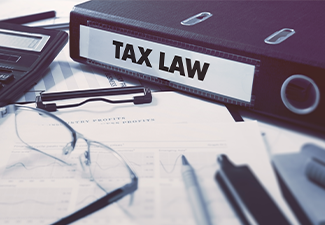10 Steps to Take If You Owe Back Taxes
March 26, 2025
 If you owe back taxes in Nevada, it's easy to feel overwhelmed.
If you owe back taxes in Nevada, it's easy to feel overwhelmed.
However, it's crucial to address the issue head-on. Ignoring back taxes can lead to serious consequences, including wage garnishments, liens on your property, or even legal action.
Fortunately, there are steps you can take to resolve the situation and reduce the burden of back taxes. It’s important to understand that there are many legal avenues available to resolve your debt, and taking the right steps can protect you from escalating penalties or legal actions.
A tax lawyer can help you make sense of your options, whether it’s negotiating with the IRS or Nevada State Tax Commission, or even exploring bankruptcy as a potential solution.
Located in Reno, Nevada, the Law Office of Scott N Tisevich, Esq is here to help. Here’s a guide to help you through the process with the assistance of a tax lawyer.
Step 1: Review Your Tax Debt
The first step in resolving back taxes is understanding the scope of the problem. If you haven’t already, review your tax returns and any correspondence from the IRS or Nevada State Tax Commission.
You should make sure that you understand exactly how much you owe, including interest and penalties. Sometimes, the tax amount on your notice might differ from what you believe you owe, so it’s important to get clarity.
A tax lawyer can assist in reviewing your tax documents to make sure the amount is correct. They’ll examine whether you’ve been properly assessed or if there are any errors in the calculations.
Step 2: Contact the IRS or Nevada State Tax Commission
Once you know how much you owe, your next step should be reaching out to the IRS or the Nevada State Tax Commission. Ignoring the issue can only make things worse, especially since both agencies have broad powers to collect tax debt.
The IRS can garnish your wages, place a lien on your property, or seize assets. The Nevada State Tax Commission has similar collection powers for state taxes.
A tax lawyer can communicate on your behalf to make sure that you handle the situation professionally and avoid unnecessary escalation. They’ll also help you understand the different options available to you, such as installment agreements or payment plans.
Step 3: Evaluate Payment Options
In many cases, the IRS and Nevada State Tax Commission offer various payment options for taxpayers struggling with back taxes. One of the most common options is setting up an installment agreement, where you can pay the debt in smaller monthly payments. The IRS offers different types of installment agreements, depending on the amount owed.
If you’re unable to pay the full debt, a tax lawyer can help you negotiate a payment plan that’s manageable. They may even be able to get you into a program that offers reduced payments or penalties. In some cases, it may be possible to settle the debt for less than the full amount through a tax settlement program, like an Offer in Compromise.
Step 4: Consider an Offer in Compromise (OIC)
An Offer in Compromise (OIC) is a program that allows you to settle your tax debt for less than the full amount owed. However, qualifying for an OIC can be challenging, and the IRS or Nevada State Tax Commission will only accept it if they believe that the amount you’re offering is the most they’re likely to collect.
They’ll look at your financial situation, including your income, assets, and liabilities, to determine if you qualify. A tax lawyer can help you determine if an OIC is a viable option. They’ll assist in preparing the necessary documentation and submitting the offer.
With their help, you’ll have a better chance of getting your offer accepted, as they’ll be able to argue that settling for a lesser amount is in the best interest of both parties.
Step 5: Explore Bankruptcy as a Last Resort
If the tax debt is overwhelming, and you can’t find a way to pay it off through installment plans or an OIC, bankruptcy might be an option. While taxes aren’t always dischargeable in bankruptcy, certain types of tax debt can be wiped out or reduced under Chapter 7 or Chapter 13 bankruptcy.
For example, if the debt is old enough and meets certain criteria, you may be able to discharge your tax debt in bankruptcy. However, there are strict rules about which taxes can be eliminated. Working with a tax lawyer can help you understand the implications of filing for bankruptcy and determine if it’s the right solution for you.
Step 6: Be Aware of Tax Liens and Levies
If you fail to pay your tax debt, the IRS or Nevada State Tax Commission can place a lien on your property. A tax lien gives the government a legal claim to your property as collateral for the tax debt. It can affect your credit score and make it more difficult to sell your property or obtain financing.
A levy is more severe than a lien and can result in the seizure of your assets, such as:
Wages
Bank accounts
Property
However, both liens and levies can often be addressed by working with a tax lawyer. They can help you file the necessary paperwork to have the lien or levy released if you’ve paid off the debt or entered into a payment agreement.
Step 7: Take Advantage of Tax Relief Programs
Both the IRS and Nevada State Tax Commission offer various tax relief programs to help taxpayers who are struggling with back taxes. For example, the IRS has a Fresh Start Initiative, which provides more favorable conditions for taxpayers who are having difficulty paying their tax debts.
Nevada offers programs like the Tax Amnesty Program, which allows taxpayers to settle outstanding tax obligations for less than they owe.
A tax lawyer can help you identify whether you qualify for any relief programs. They can help you prepare the necessary paperwork, assuring that you don’t miss out on an opportunity for tax relief.
Step 8: Keep Accurate Records Going Forward
Once you’ve made progress on your back taxes, the next step is to avoid future tax problems. Keeping accurate records is essential for preventing issues with the IRS or Nevada State Tax Commission down the line. Be sure to keep track of your income, expenses, and any taxes paid, especially if you're self-employed or have complicated tax situations.
A tax lawyer can provide advice on maintaining good tax practices, and they can guide you on how to organize your records in case of future audits. By staying proactive, you’ll make it easier to stay on top of your tax obligations and avoid accumulating more back taxes in the future.
Step 9: Respond to Notices and Letters Promptly
It’s common for the IRS or Nevada State Tax Commission to send notices and letters regarding your tax debt. Responding promptly to these communications can help you stay in control of the situation. Ignoring letters or notices can lead to additional penalties and interest, making the situation worse.
If you receive a notice, it’s important to read it carefully and take the appropriate action. If you’re unsure about the contents of the notice, a tax lawyer can help you interpret the letter and advise you on how to respond. Having legal representation can be crucial to protecting your rights during this process.
Step 10: Get Legal Help from a Tax Lawyer
Dealing with back taxes can be a stressful and confusing process. If you're facing a significant amount of tax debt, it’s highly advisable to consult a tax lawyer. They have the expertise and experience to help you assess your situation, determine the best course of action, and handle any negotiations with the IRS or Nevada State Tax Commission.
A tax lawyer will represent you in court if necessary, and they can help protect your assets and financial future. They can also offer advice on how to minimize the penalties and interest associated with your tax debt, ultimately helping you get back on track.
Reach Out to a Tax Lawyer Today
Owing back taxes doesn’t have to ruin your financial future. By following the steps outlined above and working with a skilled tax lawyer, you can take control of the situation and begin working toward a resolution. Law Office of Scott N Tisevich, Esq serves clients in Reno, Las Vegas, Carson City, Churchill County, Lyon County, Story County, and Douglas County. Contact me today.
